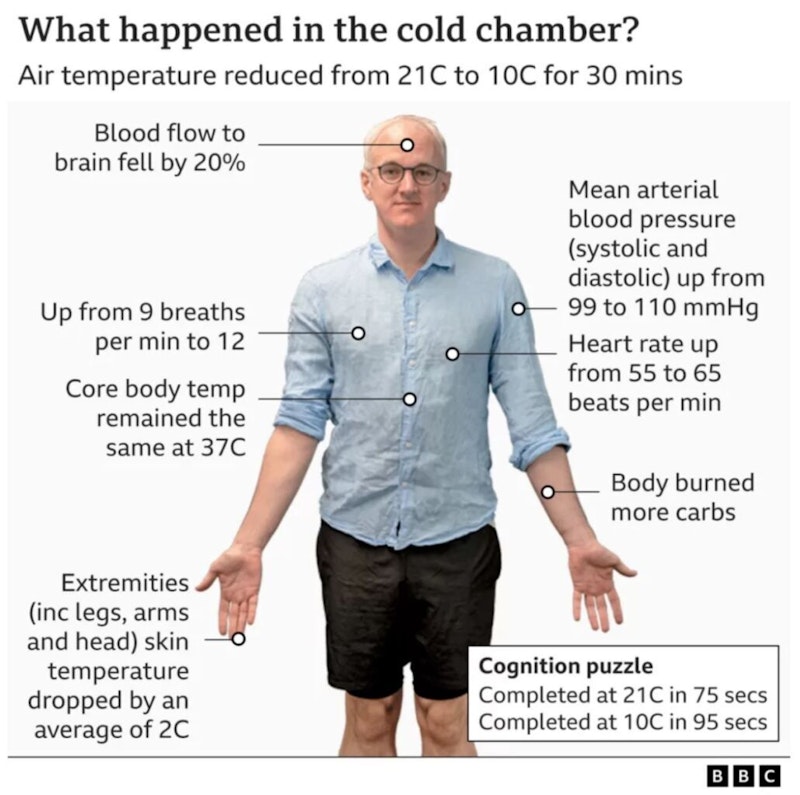In the News
The impact of unheated homes and heating on prescription

22nd November 2022
As winter sets in and the cost of living crisis continues, how will keeping the heating off affect our bodies? And will more doctors need to prescribe heating to the most vulnerable?
How does the cold affect us?
A BBC journalist took part in a fascinating experiment recently, to see how the cold can affect the body. But not sub-zero temperatures! He spent time in a room kept at a constant 10 degrees Celsius, which is the average temperature we can expect our houses to be this winter if we don't switch the heating on. If you don't think much would happen - you are wrong!

So what?
Note that blood flow to the brain fell by 20% and it took the journalist 20s longer to complete a puzzle. This could be bad news for individuals living with cognitive decline such as Alzheimer's disease, or young people studying for important exams.
Note the increase in blood pressure and heart rate? This is because the heart is worker harder to pump warm blood around the body. Combined with changes to the blood itself - it gets thicker as the environment gets colder, and the risk of heart attack and stroke is increased.
You can read more here: Staying warm: What does an unheated room do to your body?
Or listen to the podcast here: Inside Health: How can a cold home affect your health?
Heating on prescription?
Today, the BBC are reporting on a pilot scheme, where doctors are able to prescribe home heating to patients with health conditions that worsen with the cold.
'The Warm Home Prescription pilot paid to heat the homes of 28 low-income patients to avoid the cost of hospital care if they became more ill.'
There are many conditions that worsen with the cold, for example skin conditions such as eczema, autoimmune conditions such as diabetes and rheumatoid arthritis, and respiratory conditions such as asthma and COPD.
In the BBC article - Energy bills: Patients prescribed heating as part of health trial - one of the participants in the first phase of the trial was Michelle Davis, who has arthritis and serious pulmonary illness. She had her energy bills paid for from December 2021 to March 2022 and she said the difference was "mind-blowing".
You might also like

Did you know it is Organ Donation Week?
29th September 2022

The 'junk food ban', the cost of living crisis and politics!
30th September 2022

Stigma around HIV persists in Northern Ireland and it is causing harm
29th November 2022

Living with kidney disease: Dee's story
30th November 2022

What is frontotemporal dementia?
24th February 2023

Stoptober
3rd October 2023